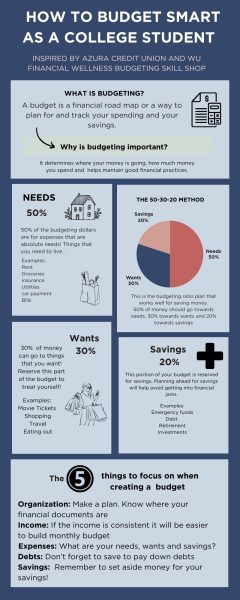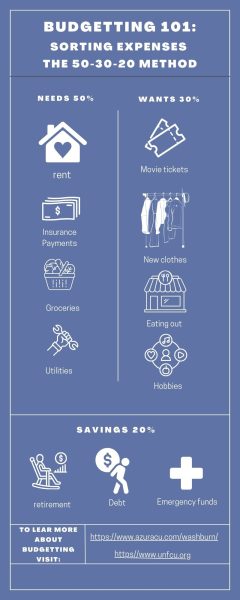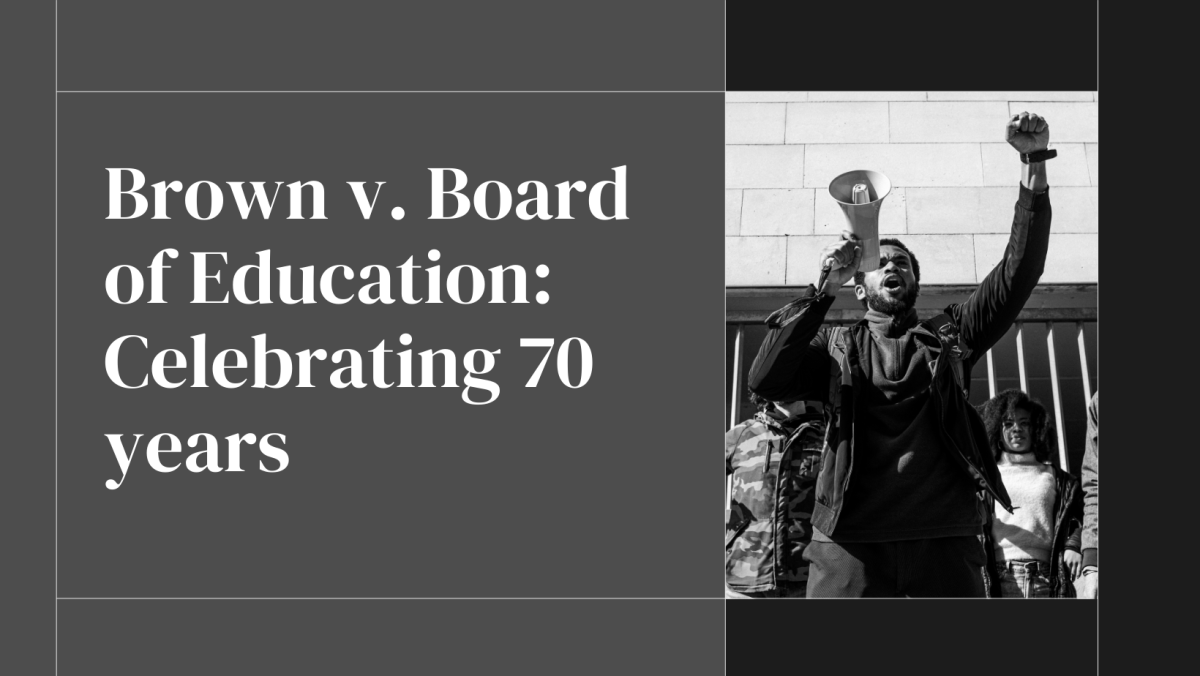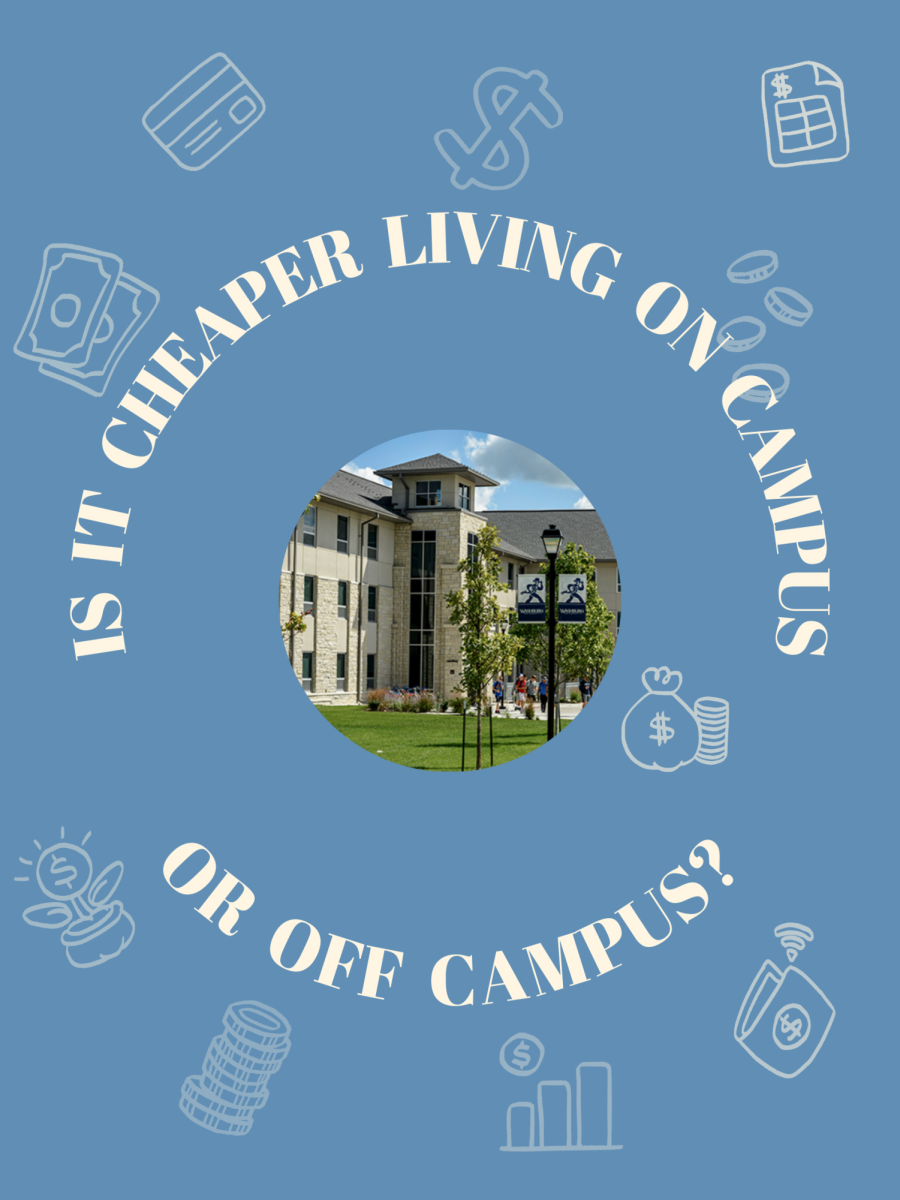
With finals, enrollment and graduation around the corner, it can be an expensive time of year for Washburn University students. According to Scholarship America, money management and finances are top stressors for college and graduate students. Because of this, Azura Credit Union has partnered with Washburn to provide financial wellness skillshops for the Washburn community.
Ginger McBride, Washburn financial aid advisor, shares her encouragement for students to not be afraid to ask questions and attend skillshops.
“When I do financial literacy presentations, I like to start by saying it’s not unusual to be uncomfortable when someone brings up money, but being able to manage money is a super important skill,” McBride said.
The most recent workshop,“Understanding and Building a Personal Budget,” took place April 4, at Washburn’s Mabee Library. Jackie Anderson, Azura Credit Union financial counselor, led the skillshop and gave a presentation about how to budget as a college student.
“Creating a budget allows us to set goals and prioritize our expenses,” Anderson said. “You wouldn’t expect to drive your car and get to your desired destination without knowing how to get there. Budgeting works in a similar way.”
Anderson shares a roadmap to budgeting with five steps to prioritize when creating a budget. These steps include organization, income, expenses, debts and savings. She discusses how all of these steps are crucial to be aware of before starting a budget, starting with organization.
“Know where your financial documents are, like …your W-2 bank statements or your bills,” Anderson said. “Have a system in place where you keep track of those things and knowing where to find them is very important.”
The next two steps are understanding income and expenses. She discusses the difficulty of creating a budget if income is inconsistent with the expenses.

“Managing your money successfully lies in figuring out your income, your expenses, how much you have and how much you’re spending,” Anderson said. “Using those factors, you can compare your resources with the amount of money you spend on a monthly basis and for a future plan.”
The final two steps focus on the portion of expenses on debts and savings. Anderson emphasizes the importance of setting aside money to save and pay off loans.
Anderson stresses the importance of saving money and creating a savings account. She discusses ways to keep track of savings contributions, deposits and the efficiency of doing this regularly.
A budgeting method Anderson worked on with the students is the 50-30-20 method. This budgeting plan divides net income in three ways: 50% for needs, 30% for wants and 20% for savings.
“This is a guideline, it is not set in stone and it’s not perfect for everybody,” Anderson said.
Anderson created the “Build a Budget” game for students to play where they were divided into teams of two and were given a card with an income scenario. They then built a budget depending on the card and found the average costs of expenses such as rent, car payments, groceries, car payment, bills and utilities. With finding the expenses and using the 50-30-20 rule, the students were able to start creating a monthly budget.
When discussing college students creating a budget, McBride recognizes the financial difficulties that college students face dealing with college tuition, loans, rent and travel expenses.
“Some of this is not going to be realistic right now as a college student and that is ok,” McBride said. “A college student’s amount of money coming in compared to how much they spend is usually way less. Put all these skills in your back pocket, so when you have a job after your undergrad, you’re not thinking about it for the first time.”
Washburn and Azura Credit Union are hosting two more financial wellness skillshops April 11 and April 18. Both workshops will be at 12:00 p.m. at Washburn’s Mabee Library in room 206B. To find out more about success skillshops or learn about financial literacy visit Washburn Success Skillshops or WU financial Wellness.
Edited by Jeremy Ford and Jayme Thompson
Below is a gallery of the final workshop with the Azura Credit to help students learn more about their finances.
Edited by Jayme Thompson and Morgan










